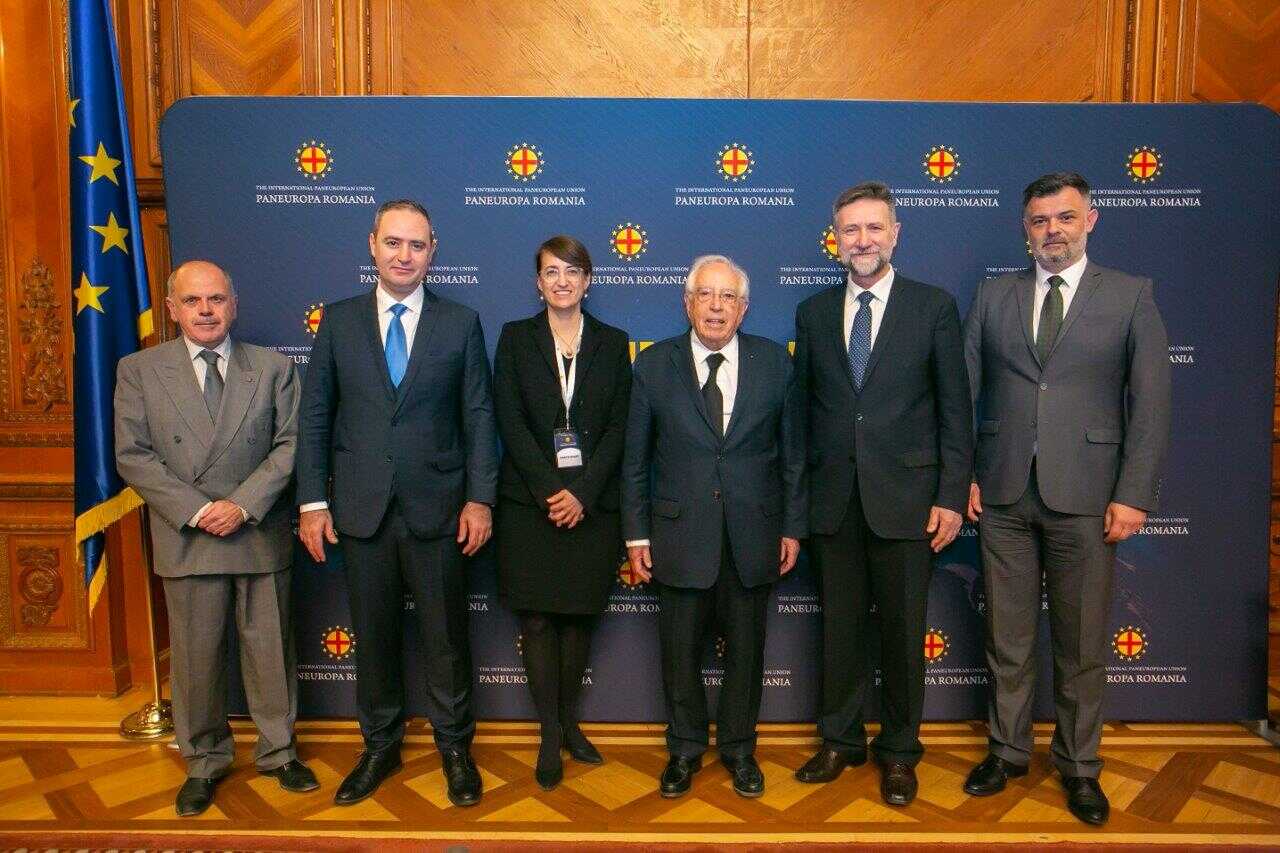Renewal of Paneuropa Romania
The renewed Pan-European Union of Romania, led by President Alexandru Nazare, held its first international conference entitled ‘Paneuropean Roadmap for a Resilient Europe’ on 20 May 2023 at the Palace of Parliament in Bucharest.

The President of Paneuropa Romania, Alexandru Nazare, Senator in the Romanian Parliament, former Minister of Finance and former Member of the European Parliament, said at this conference, organised on the occasion of the renewal of the activities of the pan-european organisation in this country, that Paneuropa, with its idea of connecting European countries and peoples, is as relevant today as it was a hundred years ago when it was founded, especially in Romania, a member of the European Union that is ‘completely loyal to Europe’. He emphasised that Romania supports every European project, but that this is not sufficiently recognised at European Union level. He raised the question of whether the relationship between the European Union and its institutions was the same for every Member State, but also concluded that the Member States needed to show more solidarity with each other.
The President of the International Pan-European Union, Alain Terrenoire, who also took part in the conference, thanked Romania for everything it has done since the beginning of the Russian aggression against Ukraine. ‘In this war, Ukraine must win, we must win, and therefore we must help Ukraine,’ he said. ‘Russia, it is clear to everyone, wants to extend its influence to other countries, especially Moldova and Georgia, and this must not be allowed,’ Terrenoire said. He expressed his regret and protest that Romania has not yet been accepted into the Schengen area. ‘I was recently in Zagreb, I met with the Croatian Prime Minister Andrej Plenković and I was very happy because I no longer needed documents to enter Croatia. I would like to travel to Romania in the same way,’ concluded Terrenoire.
The conference was also attended by the President of the Croatian Pan-European Union, Prof Dr Pavo Barišić, and Secretary General Vanja Gavran. Barišić said that values are subject to constant change. ‘The historical experiences in countries that have experienced communist totalitarian rule differ significantly from those that have experienced longer democratic rule. As a result, fundamental values are interpreted differently in society. In terms of the priorities favoured by citizens, a completely different weighting and position on the scale has been applied. What is considered a civic virtue in the Netherlands is not accepted in the same way in Poland. In some countries, religiosity or the role of the family is more important. In others, more value is placed on the rights of the individual. Cultural differences can be beneficial and bring fruitful development to a community if they are well harmonised. However, when they turn into irreconcilable ideological conflicts, they can lead to catastrophic destruction of the community. If the discussion of values turns into political calculations that lead to the penalisation of member states, it can lead to the disintegration of the European Union,’ said Barišić.
‘One could perhaps talk about several elements of European identity, but I would single out three that I think are the most important: Peace, democracy and the protection of human rights. This is characteristic of Europe, and modern Europe is recognised for this in the world. If someone were to make a marketing campaign for the European brand, it would be enough to mention just these three values. We must uphold all values, especially the value of peace. It alone is not enough. Because peace doesn't happen on its own, you have to stand up for it and fight for it. But on the other hand, I ask the question, are we actually ashamed of ourselves and our identity, or are we not even aware of it or are we simply not doing enough to promote it? I would say that we are not sufficiently aware of our identity as Europeans and the value that the brand ‘Europe’ has,’ said Gavran, among others.
Various topics were raised in the discussion, from the economy to energy to security and the need for European autonomy in these areas. Thoughts were also expressed about the lack of freedom as an important value in the European Union today and that there is too much regulation Wednesday, especially in the area of the economy. The lack of technology owned and developed by the United States and China was also raised, but it was also warned that Europe is losing competitiveness as a result. It was concluded that Europe needs a clearer strategy as there are too many challenges that need to be solved.
Former Romanian Prime Minister Theodor Stolojan, Deputy Minister of Finance Alin Andries, Deputy Minister of Transport and Infrastructure Adrian Foghis, President of Paneurope France Eric Campion, Head of the Konrad Adenauer Foundation Office in Bucharest Katja Christina Plate and many others spoke at the conference.
Programme (EN) (PDF)
